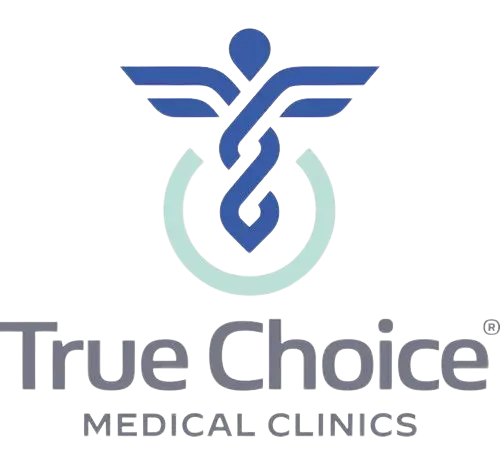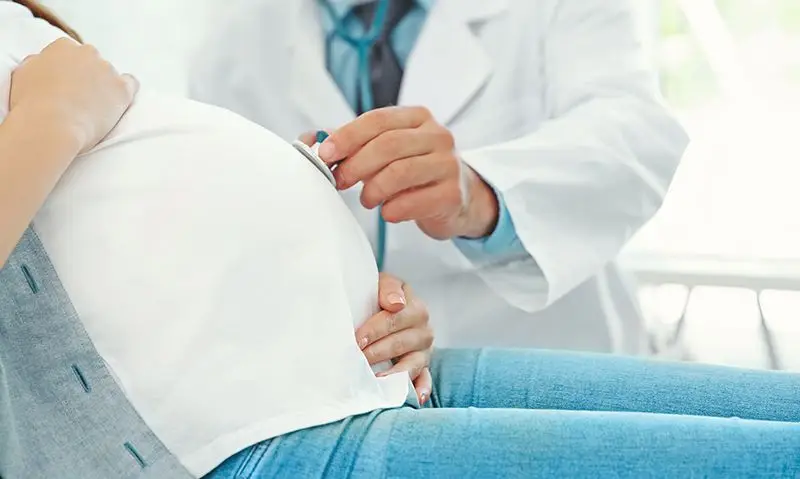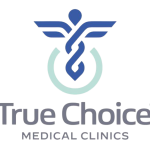Your first prenatal care visit
You just found out you’re pregnant and cannot wait for your first appointment with the ob-gyn doctor. You find out that you can have your first ultrasound and anticipate your first encounter with your unborn child! You arrive excited but uneasy about the unknown.
You are ready for your ultrasound, but then you find out you can get a blood test to determine the gender of your unborn child at 10 weeks. You are so excited! To your surprise, you also find out that you can have another blood test called a noninvasive prenatal testing screen with the option of further testing such as amniocentesis to rule out Down Syndrome.
You ask, why do I need a prenatal testing screen, I have a low-risk pregnancy? Your doctor explains that a noninvasive prenatal testing screen is one of the most accurate screens for genetic testing for Down Syndrome. It detects almost all babies with Down Syndrome and trisomy 18 with very few false-positive results.
If the test proves the risk to be very high, the woman is offered further testing through an invasive procedure called amniocentesis.
The amniocentesis, they explain, tells you for sure if your baby has Down syndrome or trisomy 18. It is done by putting a very fine needle into your belly to remove a few teaspoons of amniotic fluid from around the baby. The needle is guided by ultrasound so it does not touch the baby. The baby’s cells that are in the fluid sample are looked at to find out whether your baby does or does not have Down syndrome or trisomy 18.
Amniocentesis has a 1 in 200 (0.5%) chance of pregnancy loss. In other words, if 200 women have an amniocentesis, one would have a miscarriage or spontaneous abortion.
The Truth About Prenatal Genetic Testing
While this seems like what everyone should do and what seems safe to do, what is the difference between what a woman hears and what is the truth?
She hears on the prenatal screen that the chance of Down Syndrome is 1:100. What the doctors or genetic counselors don’t reinforce is that 1:100 actually means there is a 1% chance your baby will have Down syndrome but there is a 99% chance your baby will not have Down syndrome. In other words, if 100 women had the same result, one of them would have a baby with Down syndromeand the other 99 would not.
Unexpected Prenatal Care Questions
So a low-risk screen points to a high-risk pregnancy and a high-risk screen is deemed a very low risk to the pregnancy?
The language becomes so confusing for a woman beginning her journey of motherhood, and she becomes faced with multiple decisions that she thinks she has to decide all at once when all she really wants to know is does she have a healthy, viable pregnancy?
Then she starts asking herself, “should I get extra testing? What is involved with a low risk score? What is involved with a high risk score? Should I take a risk and get extra testing?”
“If I find out that my baby has Down syndrome or trisomy 18, what will I do with this information? Will I use the information to prepare for a child with special needs? Will I make an adoption plan for the baby?”
“Will I feel too worried for the rest of my pregnancy if I do not have additional testing? Do I need a result that is 100% accurate (amniocentesis and diagnostic test) even if it means taking the 1 in 200 chance of pregnancy loss?”
“Will I continue the pregnancy? Will I terminate the pregnancy?”
Outdated Prenatal Genetic Testing Data
The truth, according to an article from the National Council on Disability, is that numerous sources, including the Centers for Disease Control and Prevention and advocacy organizations, state that the absolute number of births of babies with Down syndrome in the United States is approximately 6,000 a year
However, the estimate is based on the findings from a study published in 2010 which used 2004–2006 surveillance data gathered in the National Birth Defects Prevention Network, to update a study thatoriginally used 1999–2001 findings.
This is important because, in 2007, the American College of Obstetricians and Gynecologists (ACOG) issued Practice Bulletins No. 77 and 88, which recommended that less invasive new screening procedures for Down syndrome, involving nuchaltranslucency measurement and maternal serum analysis, should be offered to all pregnant women, and not only to women of “advanced maternal age” (35 years of age and older).
The question of whether the new bulletins, which guides the standard of practice of American obstetricians and gynecologists, actually led to identifiable changes in how and when women receive prenatal testing for, and information about, Down syndrome cannot, therefore, be answered by looking at the updated study that used 2004–2006 findings.
Prenatal Genetic Testing Without Education
In addition, rapidly expanding genetic testing and the advancement of technology get information conveyed faster about the unborn’s potential genetic flaws but unfortunately, there are fewer and fewer genetic counselors available to explain this information to prospective parents.
How do pregnant women who are on the receiving end of increasing options for prenatal testing feel about the information they receive from that testing, who advises them on what their various results and “risk factors” mean, and how do they evaluate whether to be tested or which tests to take in the first place?
The woman should not be the default decision-maker based on inaccurate, incomplete and unpredictable data in the face of many options but few counselors.
Get Informed Before You Go
If you are a woman beginning the journey of motherhood, we encourage you to do your homework. Before you go to your first appointment, check the facts on genetic testing. Is it evidence-based?
If you opt to have genetic counseling, is there a genetic counselor available to help explain the results. What do the statistics actually mean? What are the benefits versus the risks?
True Choice’s Evidence-Based Resources on Prenatal Genetic Testing
At True Choice Medical Clinics, we are here to help you with your questions and concerns about beginning the journey to motherhood. We have experts who provide excellent care that is evidence-based, current and accurate.
Email info@truechoice.com or call our clinic at 858-397-1970 to speak with our medical staff.
http://www.perinatalservicesbc.ca/Documents/Screening/Prenatal-Families/ScreenPositive/ScreenPositiveEnglish.pdf
http://www.bazelon.org/wp-content/uploads/2019/10/NCD_Genetic_Testing_Report_508.pdf





